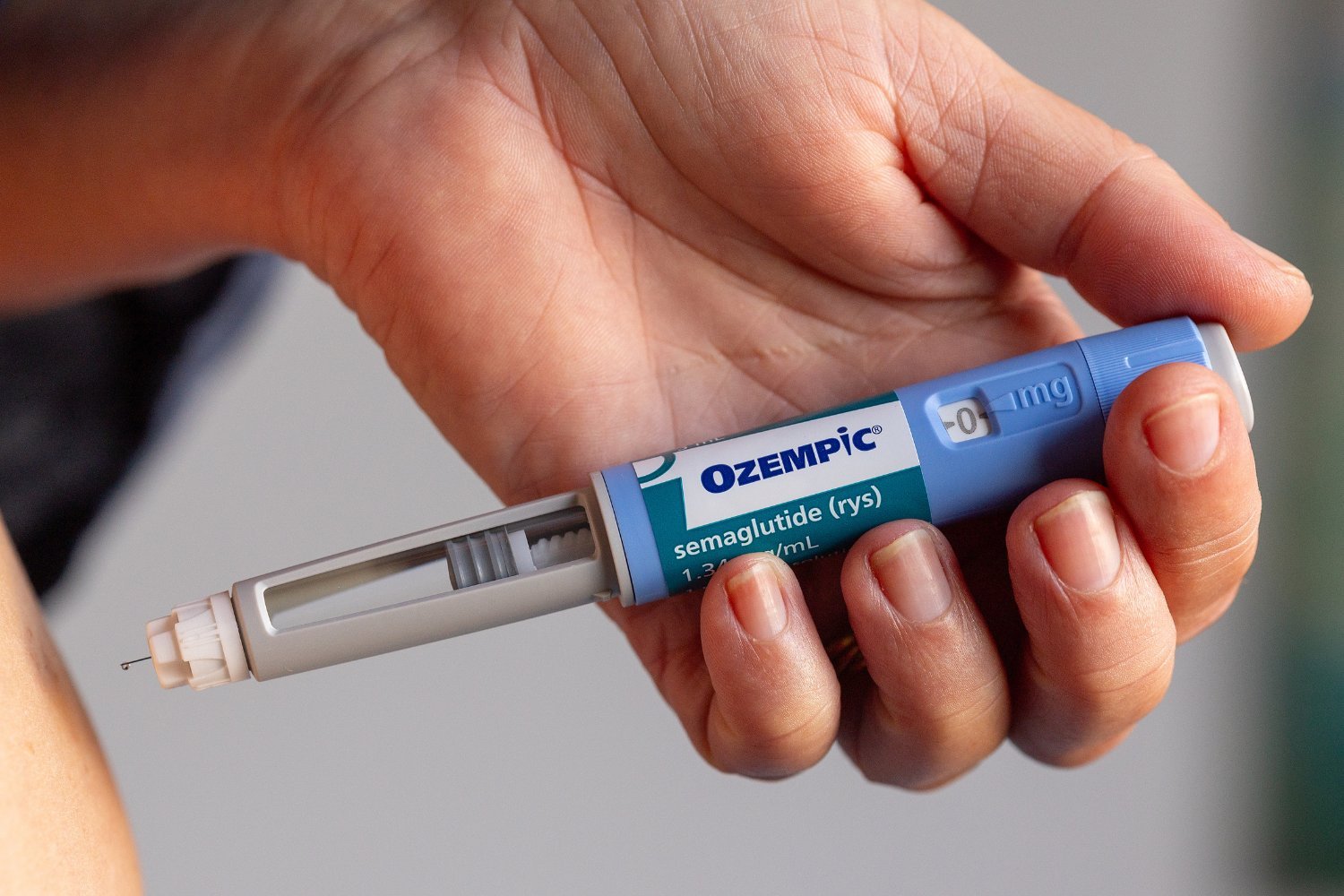Ozempic and Wegovy have gained significant attention as groundbreaking weight loss medications. However, as their usage becomes more widespread, various unintended side effects are emerging, affecting more than just body fat. While issues like “Ozempic face”—a term describing a gaunt or hollowed facial appearance—are becoming known, the impact of these drugs, specifically their active ingredient semaglutide, on oral health is a less discussed but crucial concern. These popular weight loss drugs might be affecting your mouth and teeth in ways that could lead to lasting problems.
Semaglutide’s action isn’t confined to targeted fat loss; it affects fat deposits throughout the body, including in the face. This systemic effect extends to the oral cavity, potentially leading to issues such as dry mouth, bad breath, and even tooth damage. Understanding these risks is vital for anyone using or considering these treatments.
The Link Between Semaglutide and Dry Mouth (Xerostomia)
One of the notable effects of semaglutide involves the salivary glands. The drug can reduce saliva production, a condition known as hyposalivation, which subsequently leads to dry mouth, or xerostomia. This means there’s insufficient saliva to keep the mouth adequately moist.
The precise mechanism by which semaglutide affects salivary glands isn’t fully understood. However, animal studies suggest that the drug may alter saliva consistency, making it stickier. This change results in less free-flowing fluid to lubricate the mouth, contributing to the sensation of dryness. Furthermore, GLP-1 receptor agonist drugs like semaglutide can also decrease water intake by influencing brain regions responsible for thirst. Reduced fluid intake further curtails saliva production, potentially causing saliva to become thick and frothy and the tongue to feel sticky.
Bad Breath (Halitosis): An Unwelcome Consequence
Another frequently reported adverse effect among semaglutide users is bad breath, medically termed halitosis. A diminished flow of saliva creates an environment where bacteria that contribute to bad breath and cavity formation can flourish. Key bacterial species implicated include Streptococcus mutans and certain strains of Lactobacillus.
Additionally, the bacteria Porphyromonas gingivalis, known to thrive in low-saliva conditions, is a major producer of volatile sulphur compounds. These compounds are responsible for the characteristic foul odours associated with halitosis.
Reduced saliva production also means the tongue is not effectively cleaned. This is similar to why “morning breath” occurs, as saliva production naturally decreases during sleep, allowing bacteria to multiply and generate odours. Case report images have shown that some individuals taking semaglutide develop a “furry” or coated appearance on their tongue, indicating a buildup of bacteria that contribute to bad breath.
Potential for Tooth Damage from Weight Loss Drugs
One of the significant side effects of Ozempic is vomiting. Semaglutide works by slowing gastric emptying, which delays digestion. This can lead to symptoms like bloating, nausea, and vomiting.
Repeated vomiting can cause significant damage to teeth. Stomach acid, primarily hydrochloric acid, erodes the tooth enamel. If vomiting persists over months or years, the extent of damage increases. The palatal surface (back surface) of the teeth, those closest to the tongue, are particularly susceptible, and this damage may not be immediately apparent to the individual.
![]() Graphic illustrating oral health problems like bad breath and tooth decay linked to weight loss medications
Graphic illustrating oral health problems like bad breath and tooth decay linked to weight loss medications
Vomiting also contributes to a reduction in bodily fluids. When combined with the already diminished saliva production, this places teeth at an even greater risk. Saliva plays a crucial role in neutralizing acids that cause dental damage.
Furthermore, saliva contributes to the dental pellicle, a thin, protective layer that forms on tooth surfaces. This pellicle is typically thickest on the tongue-facing surface of the lower teeth. In individuals with reduced saliva, the dental pellicle contains fewer mucins—proteins that help saliva adhere to the teeth and provide protection.
Reducing the Risk of Oral Damage
If you are taking semaglutide, there are several proactive steps you can take to maintain good oral health.
Consistent hydration throughout the day by drinking water regularly can help prevent oral surfaces from drying out. This aids in maintaining your natural oral microbiome, which can reduce the risk of an overgrowth of bacteria responsible for bad breath and tooth decay. Drinking ample water, ideally the recommended six to eight glasses daily, enables the body to produce the necessary saliva to combat dry mouth. Chewing sugar-free gum is another effective strategy as it stimulates saliva production. Swallowing this saliva helps retain this valuable fluid within the body. Gums containing eucalyptus may offer additional benefits in preventing halitosis.
There is some evidence suggesting that probiotics might help alleviate bad breath, at least temporarily. Using probiotic supplements or consuming probiotic-rich foods like yoghurt or kefir could be beneficial.
Practicing good basic oral hygiene is paramount. This includes regular tooth brushing, minimizing acidic foods and sugary drinks, and using a mouthwash to protect your teeth.
Women are twice as likely to experience side effects from GLP-1 receptor agonists, including gastrointestinal symptoms like vomiting. This increased susceptibility may be linked to sex hormones oestrogen and progesterone, which can alter gut sensitivity. To minimize vomiting, try eating smaller, more frequent meals, as semaglutide keeps the stomach fuller for longer. If you do vomit, avoid brushing your teeth immediately, as this can spread stomach acid across the tooth surfaces and exacerbate enamel erosion. Instead, rinse your mouth with water or a neutralising mouthwash to dilute the acid, and wait at least 30 minutes before brushing.
It’s uncertain how long these oral side effects will persist; they are likely to diminish if the medication is discontinued. However, any damage incurred by the teeth is permanent. Gastrointestinal side-effects typically last a few weeks and often resolve on their own, unless the dosage is increased.
Conclusion: Prioritizing Oral Health with Semaglutide Use
While Ozempic and Wegovy offer significant benefits for weight management, it’s crucial to be aware of their potential impact on oral health. Side effects like dry mouth, bad breath, and an increased risk of tooth damage are important considerations for users. By understanding these risks and implementing preventive measures such as maintaining hydration, practicing diligent oral hygiene, and managing gastrointestinal symptoms effectively, individuals can better protect their oral well-being. Regular consultations with your doctor and dentist are advisable to monitor for any adverse effects and tailor a care plan that supports both your weight management goals and long-term oral health.
Adam Taylor, Professor of Anatomy, Lancaster University. This article is republished from The Conversation under a Creative Commons license. Read the original article.











